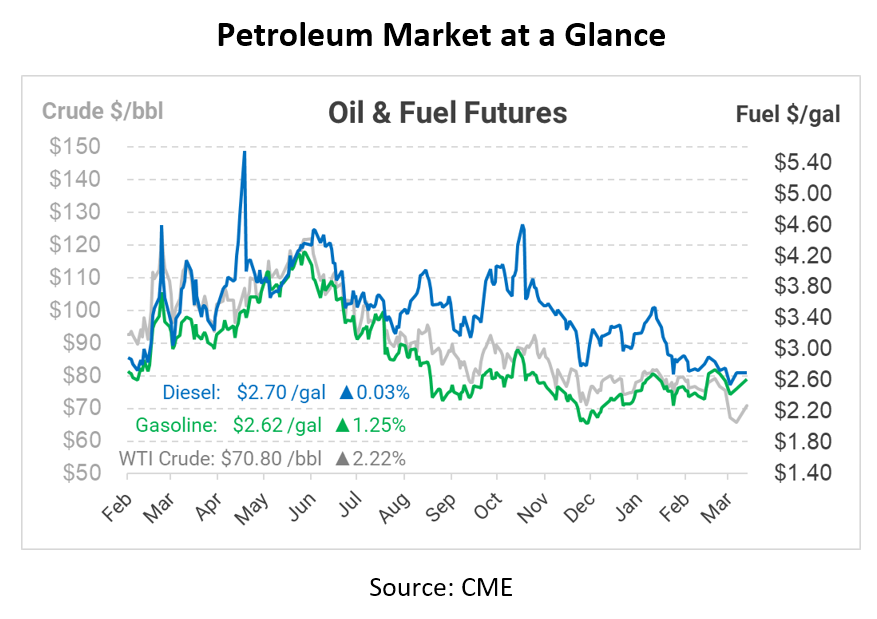
Fuel Polishing – Don’t Let Contamination Derail Your Operations
Neglecting the quality of the fuel you use is not an option if you rely on it to keep your operations running. Whether you’re powering truck fleets, marine vessels, generators, or anything in between, fuel is a critical asset that requires proper management and maintenance. And let’s not forget – when storing fuel for extended periods, it’s crucial to be vigilant for any potential contamination and have a plan to restore its quality if needed. Fuel Polishing may be the way to go!
When storing fuel, you must keep an eye on its quality. After all, contaminated fuel can result in reduced engine efficiency and clogged fuel injectors, costing thousands in reduced fuel economy and expensive repairs. You don’t want to take any chances when it comes to keeping your equipment running smoothly. That’s where fuel polishing comes in.
In the battle to keep your fuel in peak condition, fuel polishing is a process you can’t ignore. During transport or sitting in an uncleaned tank, it’s not unusual for fuel to come in contact with contaminants like water, sludge, or dirt – and it’s crucial to eliminate these impurities before pumping fuel into your vehicles.
But what exactly is fuel polishing? Think of it as hitting the reset button on your fuel quality, ensuring you have clean fuel in your tank. Fuel polishing is a process of running fuel through a filtration system that eliminates any impurities and contaminants lurking in your tank and negatively impacting the performance and longevity of your engines.
How does it work?
Fuel polishing is not a simple task; it requires specialized equipment to get the job done right. That’s where fuel polishing partners come in – they can remove all the contaminants from your fuel fast and efficiently. And the best part? It can be done right on-site, so you don’t have to haul your fuel off to a different location to get it cleaned up.
When it comes to the filtration system, there’s no one-size-fits-all solution. You might need a specific setup depending on how much fuel you’re dealing with and your specific. For that reason, it’s good to communicate the type of fuel being cleaned, the size of the tank, how much fuel is currently in the tank, and the date of the tank’s last cleaning.
By polishing your fuel, you can restore it to its original quality and keep your vehicles running at peak performance.
How to know when it’s time to get my fuel polished?
How do you know you have a fuel quality issue? At worst, you may see a drop in engine performance. Perhaps you’re getting measurably fewer miles per gallon, or the engine isn’t delivering the power it should. You might also experience more frequent re-gens, higher DEF consumption to clean emissions or increased fuel injector failures. All of these can be symptoms of poor fuel quality – alerting you that it may be time to act fast.
It’s best not to wait for problems to manifest in your equipment. Regular fuel tests, including nozzle and tank bottom samples, will tell you how your fuel is doing. You can also watch for increasing sediment in your fuel filters, indicating it’s time to polish your fuel.
More broadly, it may be prudent to test and polish your fuel anytime it sits for a prolonged period. In a clean environment, diesel can sit without degradation for 6-12 months (though if your tank is already contaminated, this could be as short as 30 days). Gasoline has an even shorter lifetime. If your fuel sits for a long time without “turning over” (emptying and refilling the tank), it may be worth polishing your fuel – or at least testing it routinely – before you see filter issues or engine troubles.
If you notice any of these indicators, it’s best to schedule a fuel polishing as soon as possible to avoid any further issues. Your fuel supplier can also suggest other repair and maintenance options to keep your tank running smoothly.
Water in your tank
It’s essential to take quick action if you spot water or other contaminants in your fuel tank. Water is a notorious fuel contaminant responsible for two major issues: microbial growth and corrosion. Let’s be real; nobody wants to deal with microbes or corroded engines. So, if you’re going to keep your fleet running and avoid costly repairs, you must eliminate water in your tank.
Also, make sure you have a reliable fuel supplier. Mansfield Energy is a trusted partner in delivering fuel quality solutions that address the fuel industry’s low fuel specs and ensure your equipment keeps operating.
This article is part of Daily Market News & Insights
MARKET CONDITION REPORT - DISCLAIMER
The information contained herein is derived from sources believed to be reliable; however, this information is not guaranteed as to its accuracy or completeness. Furthermore, no responsibility is assumed for use of this material and no express or implied warranties or guarantees are made. This material and any view or comment expressed herein are provided for informational purposes only and should not be construed in any way as an inducement or recommendation to buy or sell products, commodity futures or options contracts.






